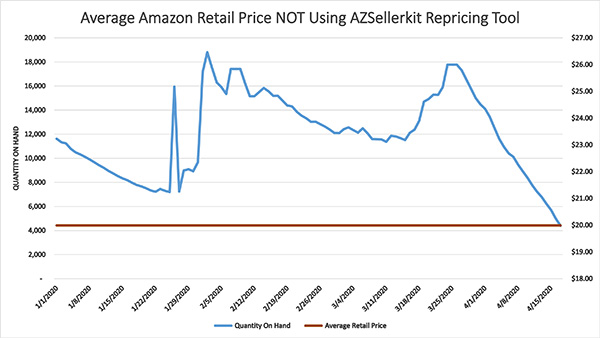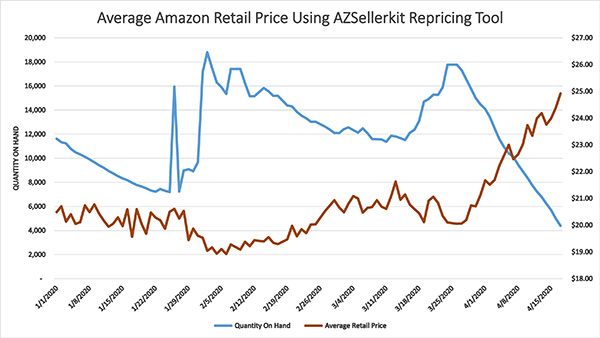Navigating Selling On Amazon During The Covid-19 Pandemic
Amazon is the world’s largest online retailer, with more than half of its sales being generated by third party sellers on the platform. In the face of COVID-19, the worldwide pandemic that is currently making its way across the United States, Amazon has found itself in an unprecedented position. The global pandemic has forced the shut down of most retail stores in the US and people are staying home as much as possible. Almost overnight, the number of people turning to Amazon as a source for their essential needs grew exponentially.
In order to keep up with the demand, Amazon put emphasis on shipping essential goods (toilet paper, Purell, face masks, etc.) over non-essential goods (apparel, electronics, etc.) and set out to hire tens of thousands of new employees to bring their delivery services back up to speed.
On March 17, 2020, Amazon took it a step further, they announced the restriction of all non-essential inbound shipments to their warehouses. This meant that third party sellers who did not sell essential goods would no longer be able to make new inventory available for sale via the Prime shipping service most consumers look for when shopping the site.
At this time, most of these inbound shipping restrictions have been lifted, but not without new restocking limits that have been put into place. These current restrictions may or may not be lifted by the time this article is printed. As all experienced sellers are well aware, Amazon’s policies change on a whim without any notice to sellers.
Third party sellers of non-essential goods that rely on Amazon’s platform for some or all of their sales found themselves in uncharted territories. They were facing about three weeks with no ability to restock inventory at all, and now have only limited restocking options with slower than normal receiving times. Maximizing profit on inventory already at Amazon was more pressing than ever.
Also, once a seller runs out of inventory on an Amazon listing the sales come to a complete stop. With Amazon’s ranking algorithms, the longer a seller remains out of stock the longer it takes to gain sales momentum back once business resumes. This means that running out of inventory at Amazon’s warehouses could leave lasting damage.

The solution to this problem is having a dynamic repricing software that maximizes profitability by recognizing when inventory is running low and incrementally pricing up to slow sales down and avoid running out of stock completely.
This is where a software like AZ Seller Kit comes into play. The software offers a repricing feature that prices based on rate of sales and inventory levels (see chart). All the seller has to do is set their minimum and maximum prices and watch their average price increase as their inventory dwindles. Once Amazon restocks, the software will bring the price back down to insure that the product is selling at the rate the seller wants.

Every Amazon third party seller needs an automated repricing tool, no matter the size of their catalog. It simply isn’t humanly possible to catch every trend in real time and make the proper adjustments the way a software would. It’s an essential part of running a successful Amazon business, even more so amidst the fallout of this pandemic.
Jason Hanan and Lenny Ash are the creators of AZ Seller Kit, and have 17 years of experience in the Amazon marketplace which has informed and inspired their development of this innovative software solution for Amazon sellers. AZ Seller Kit is an all-in-one management software that provides sellers with custom forecasting and lost sales reports, financial reports, tracking of inbound shipments and removal orders, dynamic repricing for maximum profit and more. For more information email jason@mmxdist.com



















 The tragic passing of Edmond Safra sent shock waves all around the world. Many representatives of our community attended his funeral in Geneva. Leaders included Joe Cayre, Stanley Cayre, Jack R. Avital, Jacob Kassin, Sam Domb, Jack Dushey and Miro and Nora Sutton.
The tragic passing of Edmond Safra sent shock waves all around the world. Many representatives of our community attended his funeral in Geneva. Leaders included Joe Cayre, Stanley Cayre, Jack R. Avital, Jacob Kassin, Sam Domb, Jack Dushey and Miro and Nora Sutton.